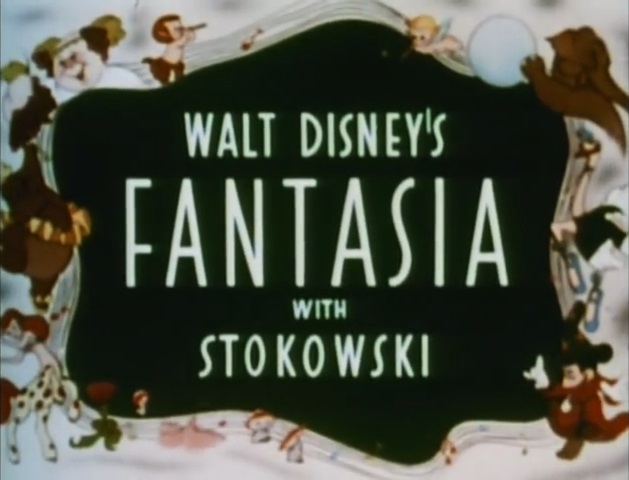- Opinion
- 22 de May de 2024
- No Comment
- 6 minutes read
The sorcerer’s apprentice in the classroom

The sorcerer’s apprentice in the classroom
We may seek shortcuts to avoid effort and the demands of methodical and rigorous work, but learning cannot be improvised


Josep Oton
A priori, educational reforms aim to improve education systems, yet they often result in deterioration. Poorly implemented innovations particularly affect the most disadvantaged classes, depriving them of access to knowledge, an essential element for social mobility.
When analysing these systemic issues, dystopian metaphors often come to mind, suggesting an intentional educational breakdown serving specific social engineering objectives.
It is undeniable that It’s good fishing in troubled waters. Some undoubtedly benefit from the educational debacle, which disastrously affects the groups with fewer resources. However, we should also consider Hanlon’s Razor: “Never attribute to malice that which can be adequately explained by neglect, ignorance or incompetence.” Johann Wolfgang von Goethe, in The Sorrows of Young Werther, remarked that “misunderstandings and lethargy perhaps produce more wrong in the world than deceit and malice do”. Similarly, Winston Churchill reportedly said of General Charles De Gaulle that “surely his insufferable rudeness must be due to stupidity rather than malice”.
Often, when contemplating repeated educational failures, the image of the sorcerer’s apprentice, immortalised by Walt Disney in Fantasia, comes to mind. However, the story predates Disney. The Sorcerer’s Apprentice is a poem written by Goethe in 1797, and Paul Dukas adapted it into a symphonic poem in 1897.
The plot is well-known. An old magician leaves his workshop, instructing his apprentice to perform some tasks. The young apprentice, bored of fetching water with a bucket, decides to enchant a broom to take over this tedious task. However, lacking sufficient experience in the magical arts, he loses control of the bewitched broom and doesn’t know the spell to stop it. As the frenzied broom continues its task, the workshop floor soon becomes completely flooded with water. The apprentice’s reaction was to attack the broom with an axe to end its compulsive industriousness. Unfortunately, he split it in two, and each piece transformed into a whole new broom, doubling the number of water buckets spilled on the floor.
Desperate, the apprentice begged his master for help to stop the chaos caused by “the spirits I summoned,” an expression in German used to describe someone who seeks help from allies that ultimately turn against them. Finally, the master returns, breaks the spell, and restores order.
Analogies of Goethe’s poem appear in classical Greek narratives, various mythologies, and the Golem legend. The theme has inspired many. In 1940, Mickey Mouse portrayed the young wizard in Disney’s famous animated film. Seventy years later, Disney Studios released an epic adventure comedy adaptation starring a wizard and his apprentice, set against an ancient conflict between good and evil.
Despite its simplicity and fun, the narrative carries a profound, timeless message. According to director Jon Turteltaub, “The most amazing thing about the story is this little lesson about wanting to take the high road, doing things the easy way, and satisfying that desire we all have to grow up a little bit faster.”
Despite the presumed innocence of Mickey Mouse and the plot, the story of the young apprentice serves as a metaphor for the catastrophes accompanying human actions, a benign version of the myth of Prometheus and his theft of fire from the gods.
Fantasia‘s 1940 release coincided with the height of the Nazi occupation of Europe, drawing parallels between the workshop disaster and the totalitarian regime’s outbreak. On 25 November 1940, journalist Dorothy Thompson wrote a harsh review of the film for The New York Herald Tribune. She stated that she “left the theatre almost with a nervous breakdown” because it was a “horrible nightmare.” She compared the children’s story to rampant Nazism, “the abuse of power,” and “the perverted betrayal of the best instincts.” Thompson also noted that the film revealed the “titanic” character of nature, while the individual was merely “a lichen chained to the stone of time.” She concluded that the film was “cruel, brutal and dehumanising”, a “negative caricature of the decadence of the West.” The journalist was so distressed that she left the screening room before the film ended.
In teaching, we risk playing the sorcerer’s apprentice by innovating out of sheer snobbery. We often apply techniques without fully understanding them. We imitate the “masters” whose classes succeeded perhaps not so much because of the method itself, but due to their mastery, personal talent, classroom experience, knowledge, and the specific context of the students and the school… A method or technique which is far from being a magic wand.
Furthermore, we risk turning young students into sorcerer’s apprentices by providing them with resources they are not yet equipped to manage.
We may seek shortcuts to avoid effort and the demands of methodical and rigorous work, but learning cannot be improvised. It requires time and dedication. Otherwise, we may unwittingly cause disasters, driven by the innocent recklessness of those attempting to bypass essential stages of growth.
Source: educational EVIDENCE
Rights: Creative Commons

